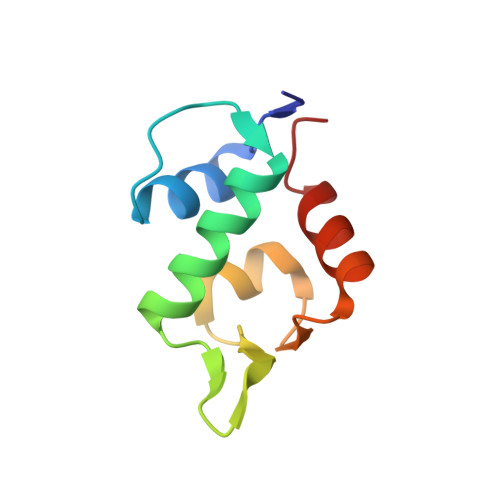In vivo activation of the p53 pathway by small-molecule antagonists of MDM2.
Vassilev, L.T., Vu, B.T., Graves, B., Carvajal, D., Podlaski, F., Filipovic, Z., Kong, N., Kammlott, U., Lukacs, C., Klein, C., Fotouhi, N., Liu, E.A.(2004) Science 303: 844-848
- PubMed: 14704432
- DOI: https://doi.org/10.1126/science.1092472
- Primary Citation of Related Structures:
1RV1 - PubMed Abstract:
MDM2 binds the p53 tumor suppressor protein with high affinity and negatively modulates its transcriptional activity and stability. Overexpression of MDM2, found in many human tumors, effectively impairs p53 function. Inhibition of MDM2-p53 interaction can stabilize p53 and may offer a novel strategy for cancer therapy. Here, we identify potent and selective small-molecule antagonists of MDM2 and confirm their mode of action through the crystal structures of complexes. These compounds bind MDM2 in the p53-binding pocket and activate the p53 pathway in cancer cells, leading to cell cycle arrest, apoptosis, and growth inhibition of human tumor xenografts in nude mice.
Organizational Affiliation:
Department of Discovery Oncology, Roche Research Center, Hoffmann-La Roche, Inc., Nutley, NJ 07110, USA. lyubomir.vassilev@roche.com















